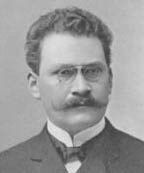|
| |
Identifying Foundational Knowledge
This initiative (and website) is work in progress
It is the Minkowski Institute that launches the initiative Identifying Foundational Knowledge, but let this become a collective effort of all who care about the advancement of fundamental physics and science in general.
Whether or not it is explicitly admitted, it is a fact that in the last several decades there have been no major breakthroughs in fundamental physics as revolutionary as the theory of relativity and quantum mechanics. This is particularly difficult to explain given the efforts of many brilliant physicists and the unprecedented advancements in applied physics and technology which enormously increased the precision of experiments.
There has been a growing suspicion that metatheoretical misconceptions* might be ultimately responsible for the lack of major discoveries in physics in recent decades (such a misconception prevented Poincaré from discovering the spacetime structure of the world).
As the source of crucial metatheoretical misconceptions turns out to be the lack of consensus on what the firmly established foundational knowledge about the world is, and even on whether such knowledge is at all possible, the Minkowski Institute launches the initiative
Identifying Foundational Knowledge.
Such knowledge will serve as the foundation on which adequate views of the world will be based and future theories will be built.
Making use of established pieces of foundational knowledge can have an immediate impact on the advancement of fundamental physics - they can provide a reliable core of physical knowledge that can help focus the research efforts by excluding some directions of research, e.g.:
- Papers or grant proposals (putting forward theories which contradict the established foundational knowledge and therefore also the corresponding experiments) should be rejected right away since they ultimately contradict the experimental evidence (especially if they do not even mention how that evidence is accounted for). See such exclusions for the case of the firmly established piece of foundational knowledge that There is no gravitational force in Nature.
- The implications of the established foundational knowledge for the relevant areas of fundamental physics should be examined critically and rigorously in order to determine whether presently adopted notions represent real features of the world (and, if not, they should be excluded from the physical knowledge) - e.g., the status of gravitational energy and momentum in general relativity should be clarified (as there is no gravitational force, how can there be gravitational energy since such energy is defined as the work done by gravitational forces; regarding gravitational energy as nonlocal is not immune from facing this question).
At this stage colleagues are invited to submit to foundational-knowledge@minkowskiinstitute.org two kinds of proposals:
- What they regard as pieces of firmly established knowledge that will not be challenged by future experiments. It should be pointed out which experiments unambiguously prove those pieces of knowledge. Ideally, the strongest candidates for firmly established knowledge are such pieces of knowledge that must be true in order that the experiments which prove them be possible.**
- Arguments demonstrating that pieces of already accepted knowledge should be examined thoroughly.***
All peer-reviewed and accepted submissions will be posted here. Colleagues are especially encouraged to send critical comments on the posted proposals for pieces of foundational knowledge.
Pieces of Foundational Knowledge
(Critical comments are posted on the page of every proposed piece of foundational knowledge)
NOTE: As we do not have sufficient administrative resources, only the authors of accepted proposals and critical comments will be notified.
* For example, one can come across views (i) that physical theories, whose predictions have been experimentally confirmed, are just a matter of description (and therefore cannot tell us anything definite about the world), and (ii) that there is an expiration date for their validity (fortunately, most physicists seem to hold the correct view that such theories will never be proven wrong in the domain where they were experimentally confirmed, because experiments do not contradict one another).
** Thanks to Hermann Minkowski we already possess such a piece of foundational knowledge - the reality of spacetime or the World as Minkowski called it: the experiments which confirmed the kinematic relativistic effects would be impossible if the world were not four-dimensional (i.e., if spacetime were just a mathematical space). See this in the case of Minkowski's own explanation of length contraction (which is the accepted explanation); start at the last paragraph on p. 79.
*** For example, while thoroughly examining the reasons for the failure so far to create a quantum theory of gravity one should not be worried to ask the heretical, but fully legitimate question of whether gravity is a physical interaction; moreover, in 1921 Eddington even mentioned it explicitly - "gravitation as a separate agency becomes unnecessary" - A. S. Eddington, The Relativity of Time, Nature 106, 802-804 (17 February 1921); reprinted in: A. S. Eddington, The Theory of Relativity and its Influence on Scientific Thought: Selected Works on the Implications of Relativity (Minkowski Institute Press, Montreal 2015). This and several more examples are briefly formulated on the blog associated with the Minkowski Institute:
https://doingphysicsright.wordpress.com/
|
|
|

